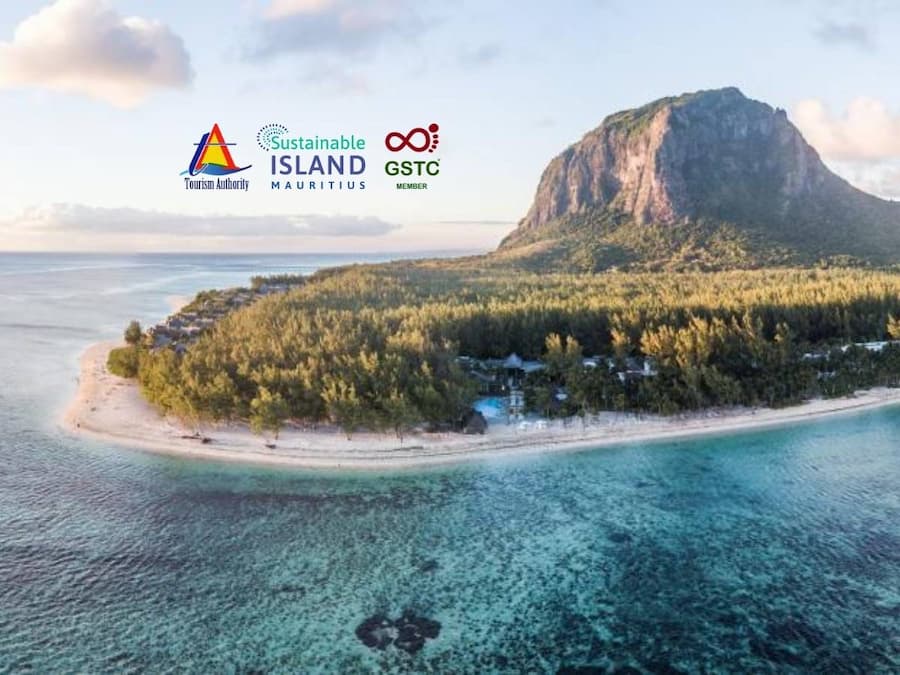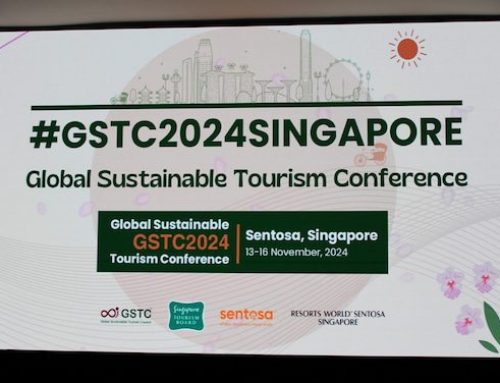Tourism Authority (Mauritius) has joined the Global Sustainable Tourism Council (GSTC) as a member
Mauritius is an island country nestled in the Indian Ocean, off the south-eastern coast of Africa. Well known for its miles of palm-fringed sandy beaches, crystal clear waters, perfect for diving, snorkelling, swimming, kayaking and much more, the country welcomes around 1.3 million, every year. Mauritius is also very much appreciated for its rich culture and history.
In an endeavour to preserve the natural beauty of the island as well as its rich cultural history, the Ministry of Tourism set the path towards a more responsible and green tourism through the implementation of the Mauritius Tourism Strategic Plan 2018 – 2021. The vision of the Mauritian Authorities is to position Mauritius as “a leading and sustainable island destination”. The Strategic Plan comprises of a series of actions to promote sustainable tourism mainly by reducing the impacts of the tourism activities on the environment, by bringing positive sustainability impacts on local communities and by preserving the cultural heritage of the island.
The Tourism Authority (Mauritius), which is a parastatal body operating under the aegis of the Ministry of Tourism, has been entrusted with the responsibility of promoting the sustainable development of the tourism industry, by fostering and encouraging the conduct of activities in a responsible manner.
Sustainable Island Mauritius (SIM)
Since 2018, the Tourism Authority (Mauritius) is spearheading the Sustainable Island Mauritius (referred to as SIM) project, which is co-funded by the European Union under the SWITCH Africa Green programme. The overall objective of SIM is to promote sustainable tourism in Mauritius by demonstrating and scaling up self-sustaining mechanism for improving sustainability impacts along the value chain as well as awareness and the market of sustainable tourism products. In order to achieve this objective the Tourism Authority has been collaborating closely with all the stakeholders of the Tourism industry.
Since the implementation of the SIM project in 2018, a series of initiatives have been carried out to improve sustainability impacts through the greening of operations along the value chain. Sustainable Island Mauritius has also introduced the Mauritius Pro-Handprint Innovation Framework (MauPHI), which comprises of a hands-on set of 11 standards aiming at limiting the negative impacts on the environment as well as encouraging marketable handprint products that support inclusive tourism, social stability, cultural and heritage enhancement and bring economic benefits to the value chain (direct and induced businesses).
“The Tourism Industry contributes to around 23% of GDP and employs nearly 100,000 people directly and indirectly in Mauritius. Despite the COVID-19 pandemic, the Tourism Authority left no stone unturned to promote responsible tourism, in a view of achieving the Green Destination Status, which would make Mauritius a sustainable Island to visit and a great place to live for its population. Joining the GSTC was a logical step in demonstrating our commitment to embrace the best sustainability criteria, following the endorsement of our local standards – MS165:2019. We look forward to fruitful exchanges with passionate Sustainability leaders while at the same time showcasing our paradise island,” said Mr. Lindsay Morvan, Director of the Tourism Authority (Mauritius).
Mauritian Standard GSTC-Recognized
In 2019, the Mauritian Standard on Sustainable Tourism (MS 165:2019) achieved ‘GSTC-Recognized Standard’ status. The standard was developed to guide the sustainable development of the tourism industry in Mauritius. It is meant mainly for the accommodation and Tour Operator activities to enhance their sustainability performance. The focus of the Sustainability Tourism Standard is to address the requirements of environmental impacts and their effect on land, air, water and other organisms and ecosystems of the island. The social-cultural impacts that affect local communities, engagement of operators within the communities, economic impacts categorized as direct, indirect or induced are among the key aspects being measured, monitored and evaluated for continual improvement of the sustainability of the tourism industry in Mauritius.
GSTC Welcomes Mauritius
“We have tracked with great interest Mauritius’ planning and success in developing a national certification for sustainable tourism,” said Randy Durband, GSTC CEO. “They continue to develop and mature a rigorous and impartial program. We’re pleased to play a part in their good work.”
GSTC encourages destinations pursuing sustainability practices in tourism to join as GSTC members. Apply the GSTC Destination Criteria and support local businesses to apply the GSTC Industry Criteria. Destinations can eventually aim for achieving certification by a GSTC-Accredited Certification Body as a sustainable tourist destination.





